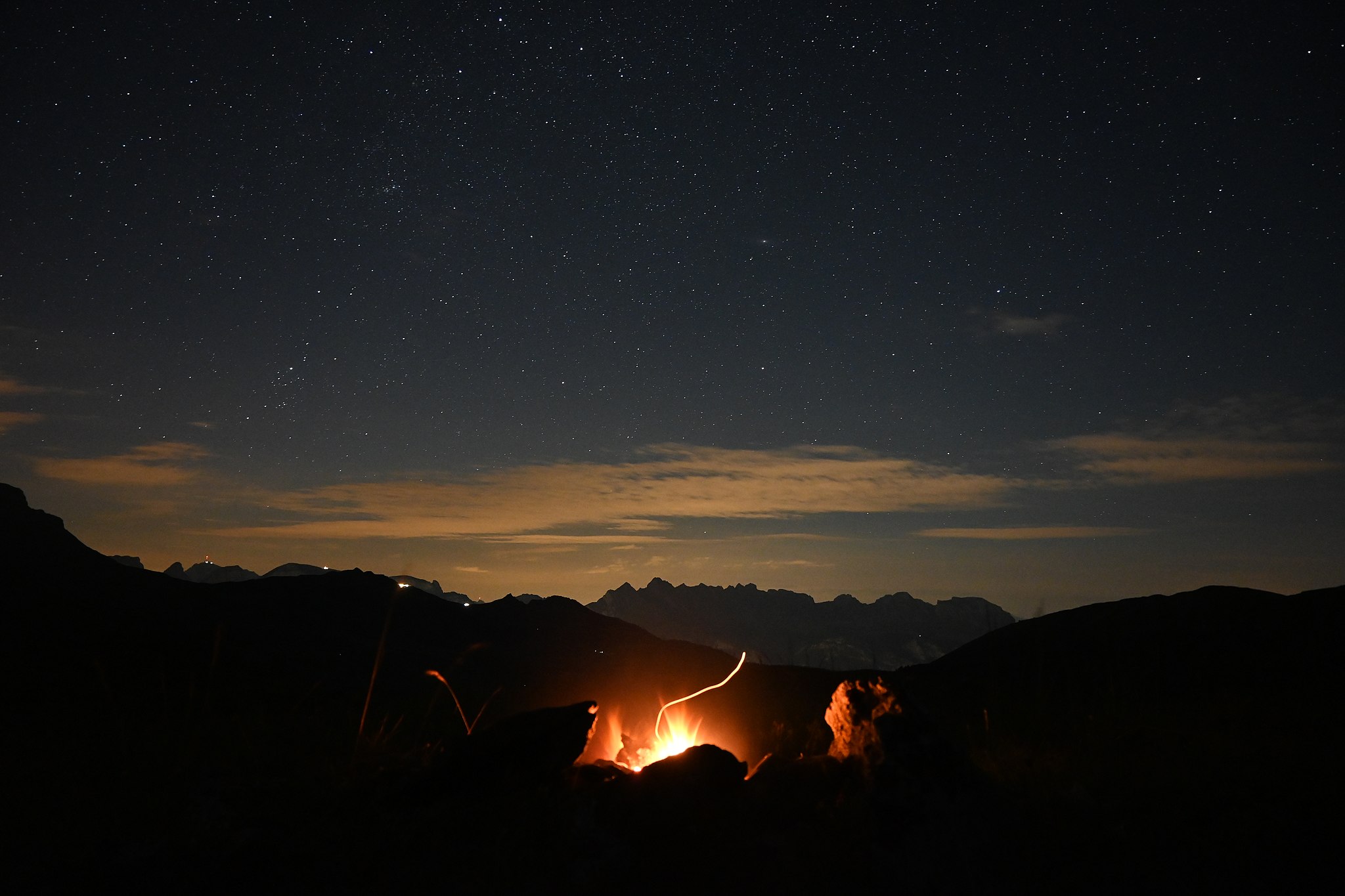By: Randy Tucker
Wyoming is an amazing expanse of America. Tourists only know two areas: Jackson Hole and Yellowstone. We, locals, don’t frequent Jackson at all and only travel to Yellowstone occasionally. They are magnificent geographic areas, but by our standards, they are far too commercial, there are too many people, and the corporate idiocy on display as many tourists try to bring the insanity of their existence to share with us is just too much.
Besides, there are other spectacular areas, some in my opinion with more beauty than the popular tourist spots possess, and with the solitary experience of being the only human for dozens of miles if you play your cards right.
We weren’t playing cards but rather were in pursuit of grayling and the elusive golden trout. Neither are native to Wyoming, but brook trout, rainbows, and browns are all imported in most of the drainages in our fair state too. We don’t mind these tourists-turned-residents, these are great invasive species, it’s the carp and starlings that present a problem.
It was a hot July day when we set out from the trailhead at Fiddler’s Lake on the loop road from Lander to the highway on South Pass.
There is a moderately challenging trail that climbs from Fiddler’s to Island Lake with stops at Upper and Lower Silas, Tomahawk, and a couple of smaller lakes. Each of these is connected by the same stream.
I had a job tying iron and pouring concrete that summer in Riverton. It was hot, physically demanding work with temperatures topping the century mark beginning in late June.
The cool mountain air that greeted us as we climbed above 9,000-feet was a refreshing change.
It was Friday afternoon on an unscheduled three-day weekend when the foreman gave us Monday off since the equipment we were installing was delayed.
We didn’t mind. We packed two pounds of salt, a pound of bacon, and two pounds of cheese each with a filtering straw to purify the water and a roll of aluminum foil. We planned to live off the fish we caught. That was it, along with our poles, bait, lures, and sleeping bags.
If you’ve never slept on the open ground beneath a sky full of stars with the only light being the dim glow of a campfire, well, you should. It’s an experience that grounds and humbles you at the same time.
The first night was warm and I fell asleep watching shooting stars dart across the sky.
The second night wasn’t that warm. We didn’t have a thermometer but the next morning there was a thin layer of ice on some of the eddies in the stream we had camped by.
I didn’t notice that until later that morning because I slept in. It wasn’t by design but because of a disturbance in the middle of the night. No, it wasn’t a bear, moose, or elk wandering through camp, it was my unconscious movement toward the fire as I slept.
I had a simple cotton sleeping bag with no rating. It was not good for freezing temperatures and as it got colder, I wiggled toward the fire.
We didn’t have a watch and it was decades before cell phones, so I don’t know what time it was when I discovered the bottom of my bag was on fire. The coals of the dwindling campfire were hot enough to ignite the cotton bag.
I quickly pounded on the fire, but my left foot stuck out of the opening in the bag. I pulled the bag uphill a dozen feet or so from the fire, stuffed a jacket into the hole, and went back to sleep.
I did the same thing that final night, and when we got back to town, I visited the local Army surplus store and picked up a Korean War-era down-filled sleeping bag.
Adventure knows no limits when you’re willing to just drop everything and wander into the wilderness. Oh, yes, we did catch prodigious amounts of rainbow and brook trout but never caught a golden on this trip.
Randy Tucker is a retired history teacher and freelance writer from western Wyoming. He has a lifetime of experience in farming, ranching, hunting, and fishing in the shadow of the Wind River Mountains. Contact him at [email protected].

